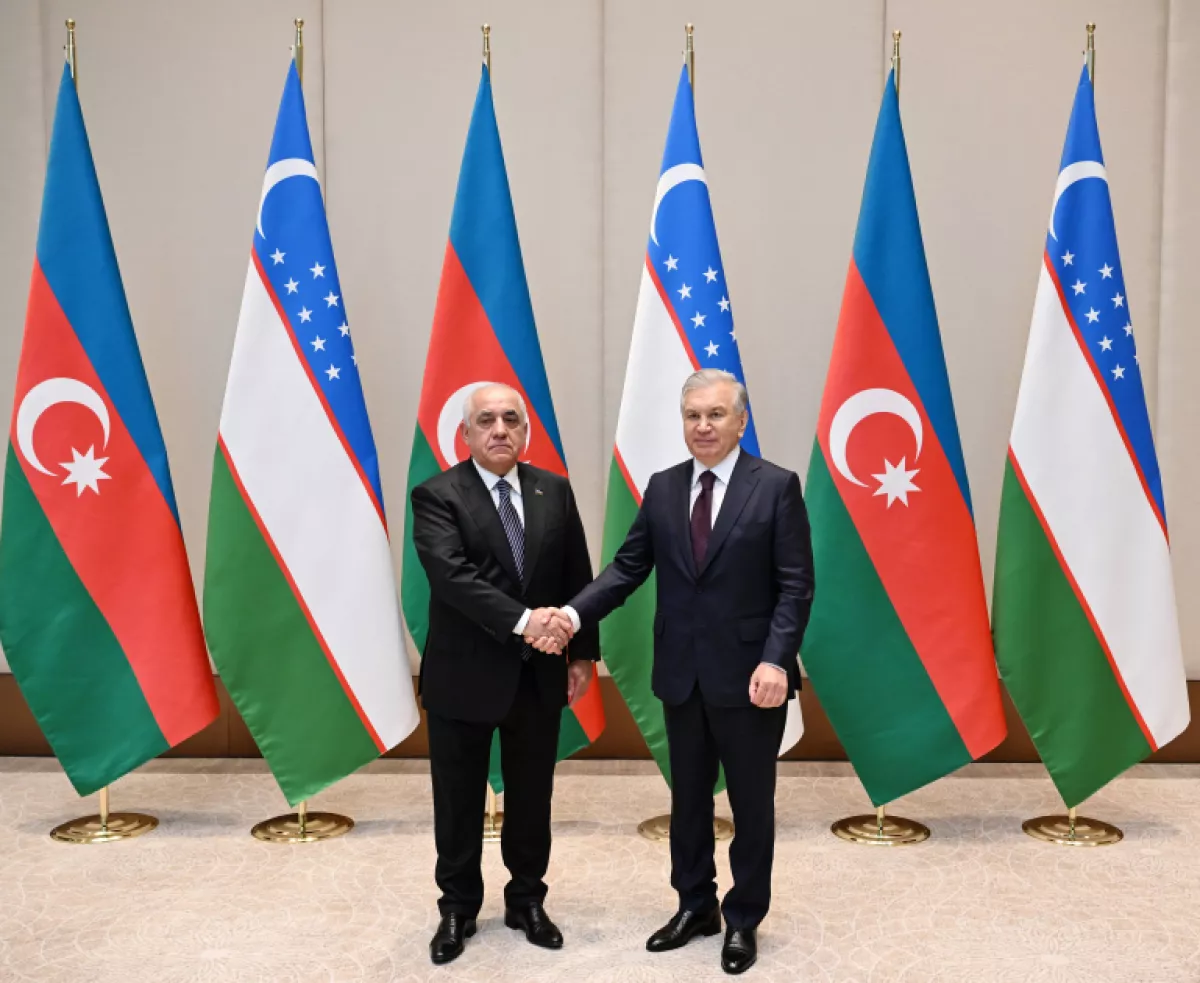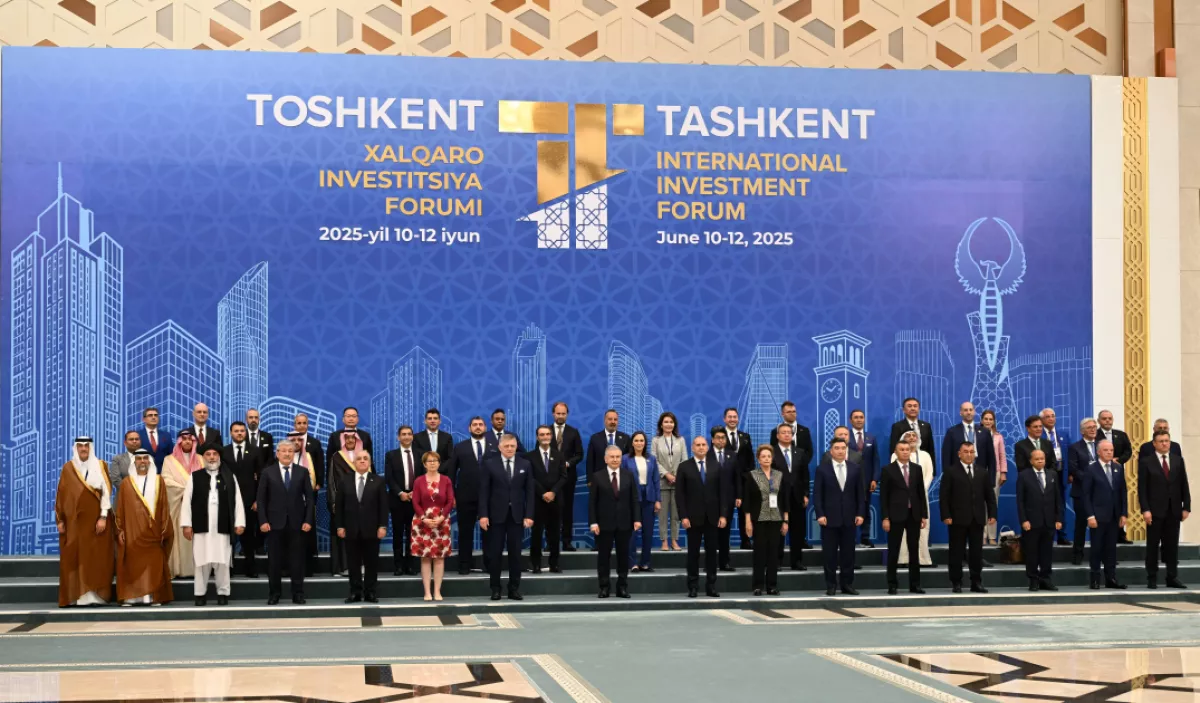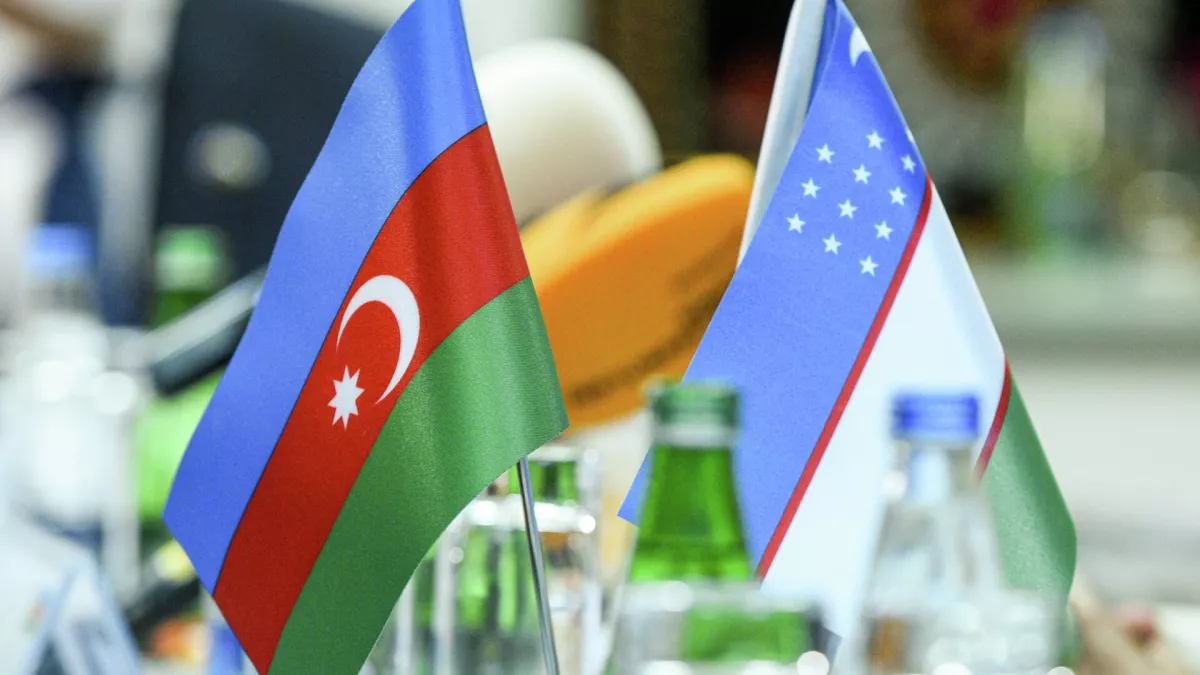Azerbaijan — Uzbekistan: The Turkic tandem of the future Caliber.Az review
In recent years, the business circles of Azerbaijan and Uzbekistan have successfully developed cooperation, aiming to significantly increase trade turnover and investment collaboration, as well as to expand freight traffic along the Middle Corridor. The two Turkic states are opening trade representations, exploring joint investment fund opportunities, establishing cooperation in the agricultural and industrial sectors, and collaborating in the fields of space and IT.
The prospects for bilateral economic cooperation became the main topic of discussions during the official visit of Azerbaijani Prime Minister Ali Asadov to Uzbekistan, where he participated in the 4th Tashkent International Investment Forum.
The growing interest in strengthening Azerbaijani-Uzbek business cooperation in recent years stems from the pragmatic desire of both Turkic states’ business communities to deepen trade, transport, and investment ties. Notably, these joint initiatives receive full support from the presidents of Azerbaijan and Uzbekistan — Ilham Aliyev and Shavkat Mirziyoyev. This steadfast commitment has helped achieve a significant breakthrough in bilateral business relations. This progress was highlighted during the June 10 meeting between Azerbaijani Prime Minister Ali Asadov and Uzbek President Shavkat Mirziyoyev, where both men expressed satisfaction with the dynamic growth of cooperation, underscored the goal of forging an allied partnership, and discussed prospects for new initiatives across many mutually beneficial sectors.

Over the past few years, Baku and Tashkent have achieved their greatest success in the field of trade. To put it in perspective, in the not-so-distant year of 2017, the trade turnover between Azerbaijan and Uzbekistan was a modest $31.2 million. However, after eight years, mutual trade has grown more than eightfold. In particular, by the end of 2023, Azerbaijani-Uzbek trade turnover reached $231.6 million, increasing by 26.5% year-on-year. Positive trends in trade strengthened even further last year, with trade turnover exceeding $252 million, which is 41% higher than the previous year’s figure.
“Last year’s trade turnover reached a quarter of a billion dollars, and importantly, over the first four months of this year, the volume of trade has tripled compared to the same period last year,” said Elnur Aliyev, First Deputy Minister of Economy of Azerbaijan, speaking at the panel session “Azerbaijan – Uzbekistan: The Vector of Economic Partnership” held during the 4th Tashkent International Investment Forum. “To further strengthen commercial ties, Azerbaijan plans to open a trade representation office in Uzbekistan.”
According to the deputy minister, next week Azerbaijan and Uzbekistan will hold a meeting of the Intergovernmental Commission — a key institutional mechanism coordinating bilateral cooperation between government bodies and business communities, thereby facilitating further business cooperation between the two countries.

A similar view was expressed during the panel session by Khurram Teshabaev, Deputy Minister of Investments, Industry, and Trade of Uzbekistan, who noted the steady development and stable growth of trade turnover between the two countries. “According to Uzbek statistics, in January-April of this year alone, growth of 40% was recorded. However, despite the positive dynamics, we need to work on further increasing volumes so that they match the pace of economic growth, as the potential of our economies allows us to raise trade turnover to $1 billion,” stated Teshabaev.
He added that Tashkent and Baku are working on creating an electronic commerce platform that will enable digital contracts at both B2B and B2C levels between the two countries, significantly speeding up and simplifying trade and intermediary activities.
Alongside the digitalisation of trade, it is crucial for Azerbaijan to diversify and increase its non-oil exports. Last year, the main domestic goods exported to the Uzbek market included white sugar and sucrose, unprocessed aluminium alloys, polyester-based paints and varnishes, as well as apples and hazelnuts. Looking ahead, greater efforts should focus on expanding exports from domestic industrial clusters and the food industry, especially given that Azerbaijan still faces a trade deficit with Uzbekistan, currently standing at around $171.5 million.
Joint projects in transport and logistics serve as an effective tool for boosting the dynamics of Azerbaijani-Uzbek trade. Uzbekistan, which has no direct access to the Caspian Sea, is a significant freight carrier and partner of the countries participating in the Trans-Caspian International Transport Route (TITR), actively developing transit of goods through Azerbaijan. In this regard, agreements have been reached to provide Uzbek companies with a platform to establish their own terminal at the Baku International Sea Trade Port (BISTP), which will be used for transit shipments of sugar as well as other export-import operations with our country.
Meanwhile, the Azerbaijani subsidiary of Azerbaijan Railways — ADY Container — and the vessels of the Caspian Shipping Company transport block trains carrying mineral fertilisers produced in Uzbekistan to the Romanian port of Constanța. As Eldor Aripov, Director of the Institute for Strategic and Interregional Studies under the President of Uzbekistan, recently noted, over the past four years the volume of Uzbek cargo transported using Azerbaijani transit infrastructure has increased fivefold, reaching one million tonnes in 2024.

Energy has also become an important area of cooperation between the two Turkic states: the State Oil Company of the Azerbaijan Republic (SOCAR ) and Uzbekneftegaz have established a joint venture for gas trading, and negotiations on deeper integration in oil and gas projects are in the final stages. Additionally, together with SOCAR, Uzbekistan’s specialised agencies are beginning geological exploration work on the Ustyurt Plateau.
Investment cooperation and the establishment of joint ventures in the non-oil sector have played an equally important role in the economic cooperation of the two brotherly countries in recent years. As noted by Deputy Minister of Economy Elnur Aliyev, one of the effective tools in this regard is the joint investment fund with a capital of $500 million: the fund’s supervisory board has already selected twelve specific projects for implementation.
“Currently, we have reviewed more than 100 proposals for investment projects between Azerbaijan and Uzbekistan, of which over 15 have been selected for detailed analysis. By primarily investing in minority equity stakes across various industrial sectors, we are putting funds into already operating companies, acquiring assets with clear growth potential,” said Nazim Hajiyev, Director of the Azerbaijani-Uzbek Investment Company, during the panel session.
“Last year, we opened our office in Tashkent, and now we are establishing a representative office in Baku, which will allow us to effectively cover the Azerbaijani market,” he added.
Overall, over the past three-plus years, bilateral investment cooperation has gained rapid momentum: currently, 540 companies with Azerbaijani capital are registered in Uzbekistan, while around 70 Uzbek trading, service, and manufacturing enterprises operate in the domestic market. Among these joint ventures is the assembly plant in the Hajigabul industrial district producing Chevrolet cars, where over six thousand passenger vehicles have been manufactured during this period.
There is a possibility that joint automotive assembly initiatives with Uzbekistan may expand further: the Azerbaijani branch of the Chinese automaker BYD — which annually produces 50,000 cars, including the Song Plus and Chazor models, at its plant in the Uzbek city of Chirchik — has shown interest in supplying components and localising vehicle assembly in Azerbaijan.

In July 2024, the Azerbaijani company TST Textile Group LLC and the Uzbek company Tukımachı Sanoat Tekstıl LLC signed a contract for cotton cultivation and cottonseed oil production at the Imishli Agropark. Overall, between 2025 and 2029, the Uzbek investor plans to invest 92.5 million manats ($54.4 million) in constructing facilities for yarn, textile, and garment manufacturing, which will be located within the Mingachevir Industrial Park.
Last year, Tashkent and Baku agreed on a programme covering 20 key areas of cooperation, including joint production of “green” electricity and its export via transit through Azerbaijan. As Prime Minister Ali Asadov noted recently, Azerbaijan is currently collaborating with Georgia, Romania, and Hungary on the project to establish a “Green Energy Corridor,” which involves laying a power cable along the Black Sea seabed to Europe.
Furthermore, during last year’s 29th session of the UN Framework Convention on Climate Change Conference of the Parties (COP29), the heads of state of Azerbaijan, Uzbekistan, and Kazakhstan signed an agreement that opens broad opportunities for joining this corridor and supplying “green” energy from Central Asian countries to Europe.
In recent months, Baku and Tashkent have demonstrated growing interest in joint initiatives in high technology and space research. According to Jakhongir Radjabov, Business Development Director at IT Park Uzbekistan, ten Azerbaijani IT companies are currently registered in Uzbekistan. In cooperation with local partners, they have created over 100 jobs, and the software and digital products developed through these partnerships are already being exported to third countries.
It is also worth recalling that member states of the Organisation of Turkic States plan to jointly implement projects and share expertise in areas such as space-based environmental monitoring and the operation of GIS centres. This cooperation is already yielding tangible results: in 2024, the national space agencies of Uzbekistan and Azerbaijan — Uzbekcosmos and Azercosmos — signed an agreement to launch a joint project aimed at conducting a preliminary assessment of soil salinisation using Earth observation data.








